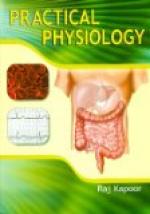Experimental Work in Physiology.
406. The Limitations of Experimental Work in Physiology in Schools. Unlike other branches of science taught in the schools from the experimental point of view, the study of physiology has its limitations. The scope and range of such experiments is necessarily extremely limited compared with what may be done with the costly and elaborate apparatus of the medical laboratory. Again, the foundation of physiology rests upon systematic and painstaking dissection of the dead human body and the lower animals, which mode of study very properly is not permitted in ordinary school work. Experiments upon the living human body and the lower animals, now so generally depended upon in our medical and more advanced scientific schools, for obvious reasons can be performed only in a crude and quite superficial manner in secondary schools.
Hence in the study of physiology in schools many things must be taken for granted. The observation and experience of medical men, and the experiments of the physiologist in his laboratory must be depended upon for data which cannot be well obtained at first hand by young students.
407. Value of Experiments in Physiology in Secondary Schools. While circumstances and regard for certain proprieties of social life forbid the use of a range of experiments, in anatomy and physiology, such as are permitted in other branches of science in secondary schools, it by no means follows that we are shut out altogether from this most important and interesting part of the study. However simple and crude the apparatus, the skillful and enthusiastic teacher has at his command a wide series of materials which can be profitably utilized for experimental instruction. As every experienced teacher knows, pupils gain a far better knowledge, and keep up a livelier interest in any branch of science, if they see with their own eyes and do with their own hands that which serves to illuminate and illustrate the subject-matter.
[NOTE. For additional suggestions and practical helps on the subject of experimental work in physiology the reader is referred to Blaisdell’s How to Teach Physiology, a handbook for teachers. A copy of this pamphlet will be sent postpaid to any address by the publishers of this book on receipt of ten cents.]
The experimental method of instruction rivets the attention and arouses and keeps alive the interest of the young student; in fact, it is the only true method of cultivating a scientific habit of study[57]. The subject-matter as set forth on the printed pages of this book should be mastered, of course, but at the same time the topics discussed should be illuminated and made more interesting and practical by a well-arranged series of experiments, a goodly show of specimens, and a certain amount of microscopical work.




